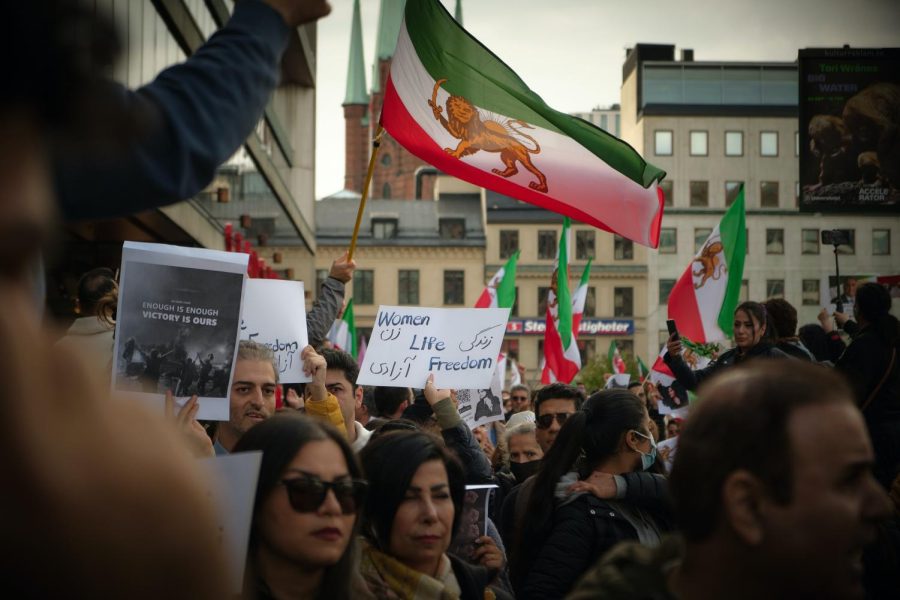Hijabi women deserve compassion not violence
The Prejudice Hijabi Women Face Around the World is Unacceptable
Protests are on the rise around the globe showing support for hijabi women after instances of using outdated laws to punish and kill women are on the rise.
In a so-called modern world, people assume that equality has been achieved. However, for hijabi women, this has been proven wrong time and time again. Last month, 22-year old Kurdish woman Mahsa Amini lost her life to police brutality simply because she did not wear her hijab properly. Since the 1980s, The Republic of Iran has taken extreme measures to eradicate women’s rights to freedom. Protests all around the world have erupted in solidarity because of the unjustly slain victim.
On September 13, 2022, Amini was arrested in Tehran, Iran and placed under police custody after, per Iranian law, she incorrectly wore her headscarf. Since the Iranian Revolution of 1979, all women in Iran have been legally required to wear a hijab. This law applies to visitors to the country as well. Over time, Iran introduced several imperious jurisdictions to enforce the hijab mandate on all women. Following the violent arrest, Amini unexpectedly collapsed and slipped into a coma. She died on September 16th while in police custody. Her death quickly raised suspicions on whether her death was just simply unexpected or premeditated.
Iran introduced a new sector of their police force, the Guidance Patrol, better known as the mortality police to handle so-called illegal activity. This addition to Iranian law enforcement opened the door to harassment, abuse and the diminishing of women’s rights. Women are now being attacked on the streets with knives while having acid thrown at them, and these women are even being killed due to government regulations on their clothing. Furthermore, potentially facing a punishment of 74 lashes – or strikes to their bodies by the Iranian government – for choosing to wear their religious veil or to wear no headscarf according to their preference shows a glimpse inside this nightmare.
Witnesses in the van with Amini after her arrest accused officers on site of brutally beating and molesting the 22-year-old which lead to her death. While officers claimed the accusations were false, obtained medical scans and examinations revealed that a skull injury and internal bleeding inevitably caused Amini to collapse and fall into a coma.
Conversely, on February 10th, 2022, one of India’s courts, The High Court of Karnataka, established a hijab ban throughout the state of Karnataka, barring girls from wearing their hijab while at their respective schools, stating that the hijab is not an “essential” part of Islam. The bigotry ruling stated that students may not wear a shawl, hijab or any other religious garment under any circumstance and, if violated, the student may face serious repercussions.
Since February, there has been a significant increase in horrific discrimination towards hijabi women. Being declined entry in public areas, facing harassment while on public transportation as well as facing violence wherever they go are some of the many injustices faced each day. Fearing for their lives, school girls are now forced to choose between their education or their faith.
Moreover, France recently introduced amendments that call for the eradication of religious garments around the country. Senator Stéphane Piednoir, who introduced the amendment, claimed that the ruling was not aimed towards Muslim women. However, it was motivated by their religious veil, describing it as “a propaganda vehicle.” The current ruling states that French government officials, anyone partaking in sports events and girls under the age of 18 are prohibited from wearing religious garments in a public area.
With women from all backgrounds in the workforce, the unjust discrimination imposed a profusion of obstacles for 30-year-old Sarah Asmeta, a French-Syrian Attorney. In 2022, France’s highest level of court ruled an inequitable ban on religious garments worn by lawyers and anyone else employed in the legal system. By expressing her faith through her clothing, Asmeta is no longer allowed to work with her clients. “Why does covering my hair stop my client from the right to a free trial?” she told Reuters, a United Kingdom-based news agency. “My clients are not children. If they choose me as their lawyer, with my veil, then it is their choice.”
Although the awareness of the religious garment has been in the spotlight over the past few years, Muslim women who observe hijab are nowhere near the end of their battle of freedom. A common trend between France, India and Iran is the control over women’s choices. While women in Iran are protesting for their right to observe their hijab without government intervention, women in France are pleading with their government to simply give them the right to wear it. The scrutiny faced by hijabi women around the world convey the pain, suffering, and lack of freedom they endure only for wearing what they please. Women should have the right to make their own decisions about themselves. Whether it be their bodily autonomy, education or merely the way they dress, women should be subject to make their own decisions about themselves without the unsolicited opinions of the government or anyone else.
The staff of the GHFalcon would love a donation to help the journalism program at Green Hope continue to flourish. Many of our donations go to towards improving the materials that we deliver to you in electronic format. Thank you so much to those that are able to donate.

Zeba Hussaini is a nationally recognized writer best known for her timely coverage on local and international news. Her main responsibilities include creating content, overseeing publication...













































































